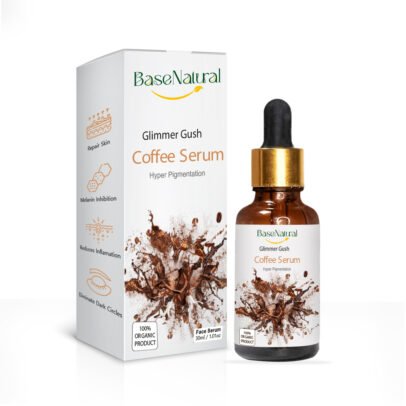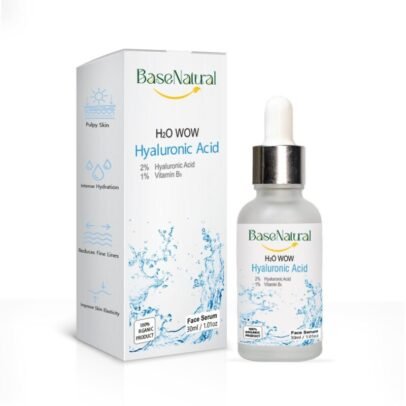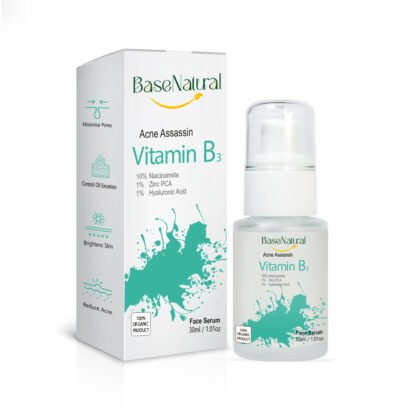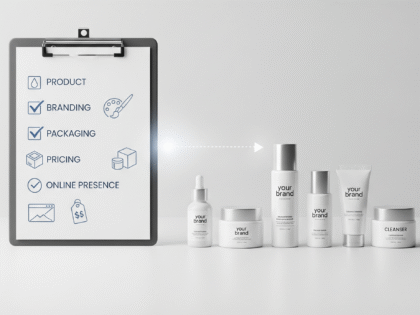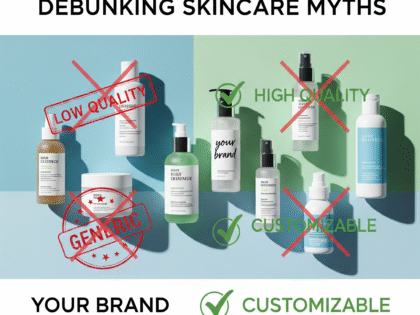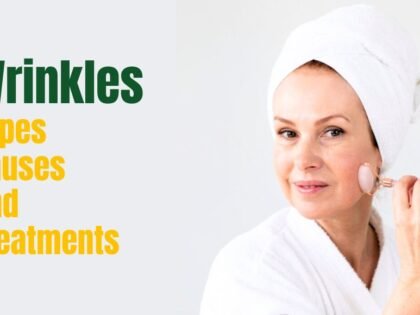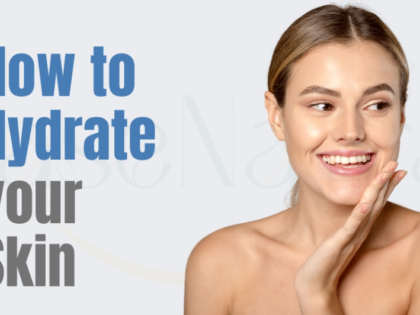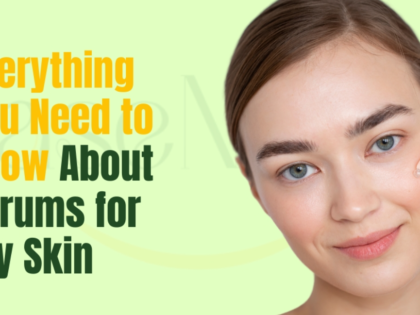The Hidden Truths about Cosmetic Products
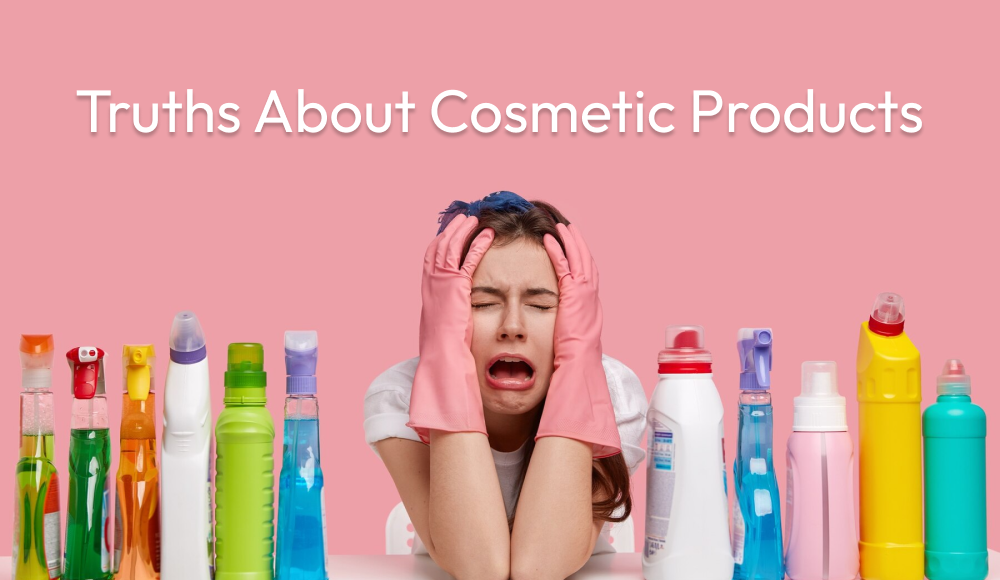
The Cosmetic Industry has evolved a lot since the first cosmetic product appeared 5,000 years ago in Egypt. Back then, a few beauty products that were used included egg whites, mint leaves, or incense oils. However, as time passed, various experimentations have been performed in this industry, varying from lead-based formulas to whiten the skin, and rock powder to line the eyes. Today, it’s a global powerhouse serving beauty needs in almost every corner of the world with its ingredients counting everything.
According to the various reports of the Demands Sage, the cosmetic industry worldwide is booming and is estimated to have reached $108.41 billion in 2025. [1] Besides, Americans spent an average of $211.82 on beauty products, with skincare alone accounting for 42% of the market.[1] Nonetheless, there are scary facts hidden behind those glossy labels of the personal care and beauty industry that may make you think twice about the products you buy. The blog deals with those facts and gives better, organic alternative options for skincare enthusiasts to keep their skin ever-green without having eye-to-eye with the unseen impacts of disastrous chemical ingredients.
Unveiling the Dark Side of the Cosmetic Industry
Here are some scary facts about the personal care and beauty industry. These differ slightly between countries, but the general approach holds true:
1- Toxic Ingredients
There have been so many studies about health issues linked to toxic chemicals in makeup, and according to a 2004 survey undertaken by the Campaign for Safe Cosmetic, an average of 12 personal care products are used by women and girls daily.[2] Many beauty industries use 1,4-dioxane, parabens, sulfates, and synthetic fragrances in their products. According to a computerized assessment conducted by the Environmental Working Group (EWG), among ingredients in 15,000 cosmetics and other personal care products, 22 percent of all products may be contaminated with 1,4-dioxane, based on its common presence in workhorse detergent-like ingredients that the cosmetic industry uses in a wide array of products. Even many industries claim themselves to be “Natural, All Organic, Paraben-free, Ammonia-free, and Lead-free.” These tags are used for nothing but deceptive marketing practices without any transparency and accountability.
2- Environmental Toll
Not only do the carcinogenic and potentially harmful ingredients make up the cosmetic industry, they pose serious risks to the environment too with the environmental practices at their performance center. Although many brands and businesses own corporate sustainable responsibility (CSR), the global cosmetics industry is one of the leading polluters when it comes to plastic packaging. According to statistics from the Zero Waste Week research, plastic packaging waste from the beauty industry reaches over 120 billion units of packaging annually.[3] An average moisturizer bottle can take nearly 450 years to fully decompose.[4] These cosmetic products often involve multiple layers of packaging materials such as plastic sheets, card paper inserts, sleeve boards, foam, mirrored glass, and other components, sometimes all put together in a single purchase making recycling and sustainable waste management more challenging.
3- Animal testing
Many beauty brands still test their products on animals. One study found that a whopping 88% of major cosmetic brands are not cruelty-free, meaning they test cosmetic products on the skin of animals to check for irritation or harmful effects. [5]
According to the Humane Society, around 500,000 animals suffer and die as a result of the cosmetic industry. [6]
Thankfully, many brands have vowed to stop testing on animals — but regulation has been slow to catch up. This summer, the UK government quietly reversed a ban on animal testing for beauty ingredients, paving the way for harmful practices to continue.
A Shift Towards Conscious Beauty
Therefore, the only way to deal with the hazards associated with the cosmetic industry is to look for more organic options in your skincare routine and switch to products with health-friendly and environment-friendly ingredients.
First, there are some key ingredients to avoid. Currently, the United States only prohibits 11 ingredients suspected of causing any harm from being used in cosmetic products.[7] In contrast, the European Union has banned more than 2,400 potentially harmful ingredients from use in cosmetics.[8]
Nonetheless, Formaldehyde, Toluene, DBP (dibutyl phthalate), Parabens (propyl, isopropyl, butyl, isobutyl), PEG, Synthetic colors, Petrochemicals, Polyethylene, DMDM Hydantoin, Triclosan, Retinyl Palmitate or Retinol, and Oxybenzone is entree ingredients that are needed to be kept into consideration from the lengthy list of chemicals we’re exposed to by skincare enthusiasts while buying any beauty care product.
If you’re not sure about an ingredient, visit the Environmental Working Group’s Skin Deep Cosmetics Database. You can enter any ingredient, as well as several brands, companies, and products, and find out the hazard rating. [9]
Here are some of the most used product names with the ingredients.
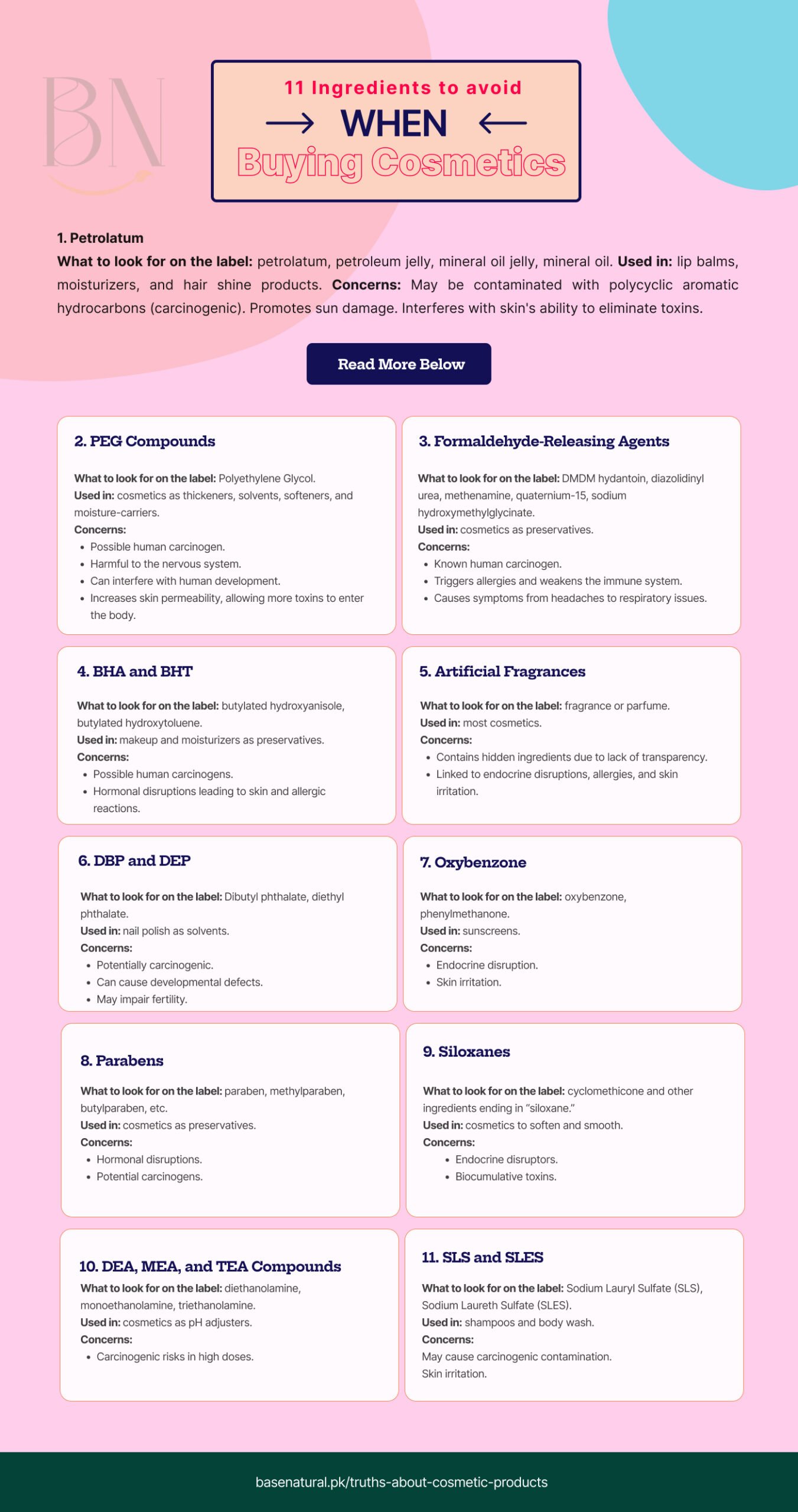
Even if you are a lay-person in terms of analyzing the complicated jargon mentioned on the bottles, in order to keep yourself from getting ditched and to be aware of CSR and organic only being used as buzzwords, make sure you are stopping at an organic business owned by health professionals, who’s done the research for you and is transparent in its ingredients and manufacturing.
The Organic Range You Can Trust
Luckily there are a growing number of companies out there who truly care about the term “organic”, and are doing their ethical darndest to create products that are truly natural and organic, kind to the environment, aren’t tested on animals, and work.
Once you make the switch, you’ll suddenly realize that that stinging sensation you used to get from your “serum” was not normal! The organic range that you can switch to without giving a second thought is “Base Natural.” There are various reasons to trust us
- The business is owned by medical experts who know what they are using in the and of ingredients and are aware of extracting the real nature for you to your skincare dressing tables.
- The organic skincare start-up strictly adheres to environmental, ethical, and quality principles.
- The business does not claim that its products are safe for all. Despite using 100 percent organic skincare ingredients, it encourages patch testing and then uses the product. Also, the compatibility is mentioned for the customers if required for any product.
- Of course, you will feel the gentleness when you use it- no tingling effect, no burning, but only the gentle skin
Ready to make the switch? Begin with our gentle and effective organic serums.
-
Product on sale
 Glimmer Gush – Coffee SerumOriginal price was: ₨1,599.00.₨1,439.00Current price is: ₨1,439.00.
Glimmer Gush – Coffee SerumOriginal price was: ₨1,599.00.₨1,439.00Current price is: ₨1,439.00. -
Product on sale
 H2O Wow – Hyaluronic AcidOriginal price was: ₨1,599.00.₨1,439.00Current price is: ₨1,439.00.
H2O Wow – Hyaluronic AcidOriginal price was: ₨1,599.00.₨1,439.00Current price is: ₨1,439.00. -
Product on sale
 Acne Assassin – Acne SerumOriginal price was: ₨1,499.00.₨1,349.00Current price is: ₨1,349.00.
Acne Assassin – Acne SerumOriginal price was: ₨1,499.00.₨1,349.00Current price is: ₨1,349.00. -
Product on sale
 Sunshine Splash – Vitamin C SerumOriginal price was: ₨1,499.00.₨1,349.00Current price is: ₨1,349.00.
Sunshine Splash – Vitamin C SerumOriginal price was: ₨1,499.00.₨1,349.00Current price is: ₨1,349.00.
Bottomline: A Fresh Start for Your Skin and the Planet
In sum, today’s cosmetic industry stands on hundreds of hidden truths that are posing equal threats to both humans and the environment. At this time, switching to organic ranges is one of the most feasible solutions to protect your life and your earth’s life. Base Natural is an all-organic brand that takes organic as its core value.
References
- 31 Beauty Industry Statistics 2024 (Worldwide & Market Data)
- 10 ugly truths about the beauty industry
- Zero Waste Week
- This is how long everyday plastic items last in the ocean | World Economic Forum
- Are your cosmetics really cruelty-free’?
- The Humane Society of the United States
- Prohibited & Restricted Ingredients in Cosmetics | FDA
- Cosmetic Products Regulation, Annex II – Prohibited Substances
- EWG Skin Deep® Cosmetics Database

